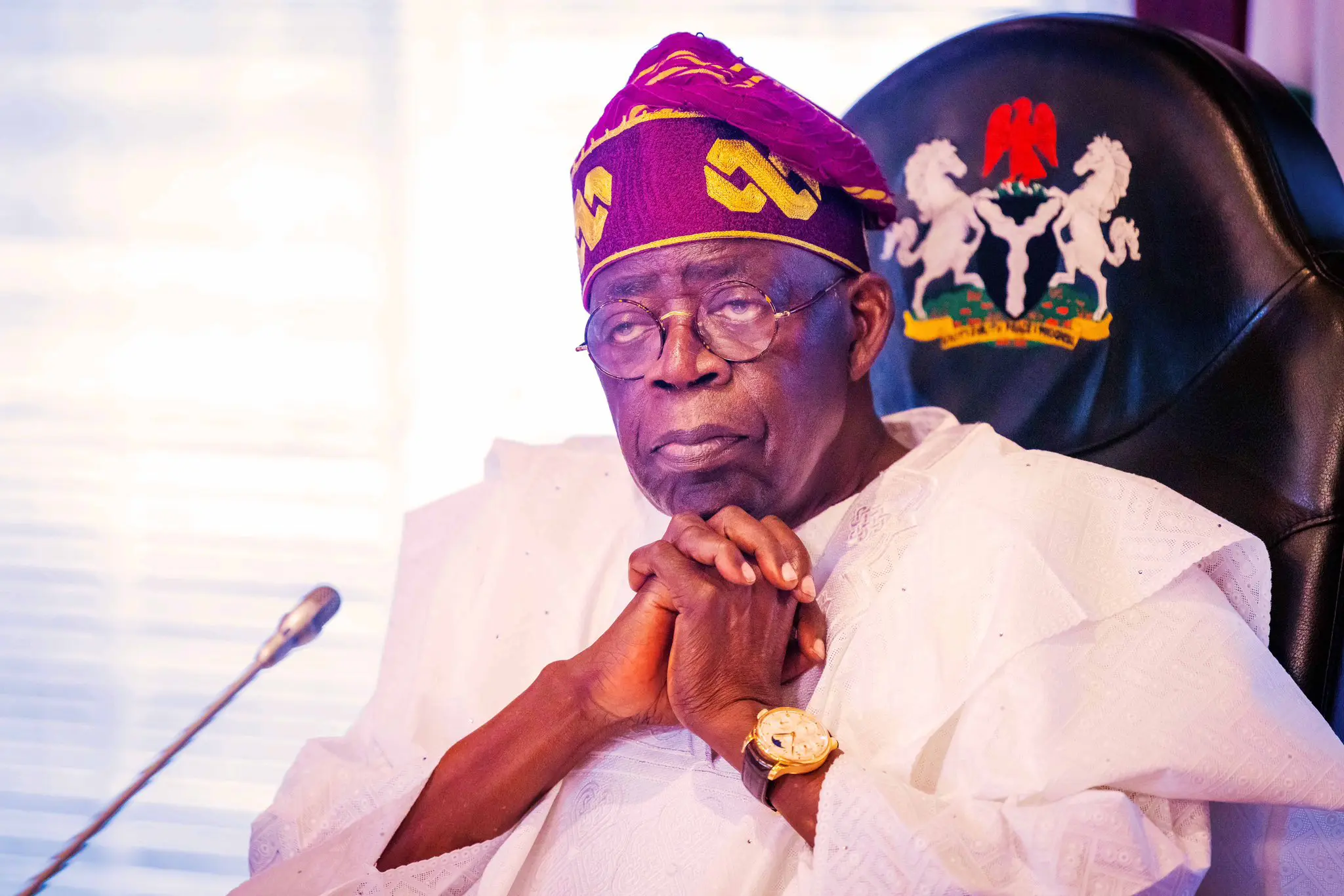Tinubu, others mourn as Emir of Ningi buried amid tears
The remains of the late Emir of Ningi, Alhaji Yunusa Mohammed Danyaya have been buried in Ningi, Bauchi State. He died Sunday morning at a hospital in Kano, two days after returning from a medical trip to Saudi Arabia. He passed away at the age of 88 after spending 47 years on the throne. The […]

President Tinubu
The remains of the late Emir of Ningi, Alhaji Yunusa Mohammed Danyaya have been buried in Ningi, Bauchi State.
He died Sunday morning at a hospital in Kano, two days after returning from a medical trip to Saudi Arabia.
He passed away at the age of 88 after spending 47 years on the throne.
The funeral prayer, led by the Chief Imam of Ningi, Dr Muhammad Umar, was held at the Emir’s Palace, Ningi.
It was attended by thousands of mourners, including Governor Bala Abdulkadir Mohammed, former governors Ahmadu Mu’azu (Bauchi) and Sule Lamido (Jigawa), Senator Abdul Ningi, Emir of Bauchi, Alhaji Rilwamu Suleimanu Adamu, national and state lawmakers.
President Bola Ahmed Tinubu described the deceased emir as an illustrious leader who deployed the power and resources of his throne in the service of his community.
Tinubu, in a statement by his spokesperson, Ajuri Ngelale, prayed for the repose of the soul of the departed traditional ruler and condoled his family and all those grieving the loss.
Governor Bala said that the late traditional ruler lived a life of selfless service and offered counsel and fatherly guidance for the peace, unity and development of the state.
He described the late Emir as a father who demonstrated the highest value of leadership, fostering unity, progress and development not only within Ningi emirate and Bauchi State but the country as a whole.
Residents of Ningi said Emir Danyaya’s death has left an irreplaceable void in their hearts.
They described the late traditional leader as a man of peace, wisdom, and immense dedication to the welfare of his people.
Vice Chancellor of the Sa’adu Zungur University, Professor Fatima Tahir, described the late traditional ruler as a symbol of wisdom, leadership, and cultural heritage.
The Nigeria Union of Journalists (NUJ), Bauchi State Council, also commiserated with the government of the state, recalling the contributions of the late emir to the growth and development of traditional institutions in northern Nigeria and his relentless effort in ensuring peace, harmony and mutual understanding among the three tiers of government.
Born in 1936, the emir had an illustrious working career before ascending the throne in 1978.
First, he attended the Ningi Elementary School, between 1941 and 1946, then Bauchi Middle School from 1946 to 1951 before proceeding to the School of Hygiene, Kano, the same year.
He later gained admission into the Ahmadu Bello University Zaria and earned a diploma in Public Administration.
He had a distinguished working record during the Native Authority (NA) period, even though he started as a dispenser at Nasaru Dispensary, Ningi.
He was a member of the Ningi Emirate Council from 1956 to 1960, a counsellor for the Medical and Health Department from 1958 to 1959 and a member of the Ningi NA Outer Council between 1954 and 1956.
